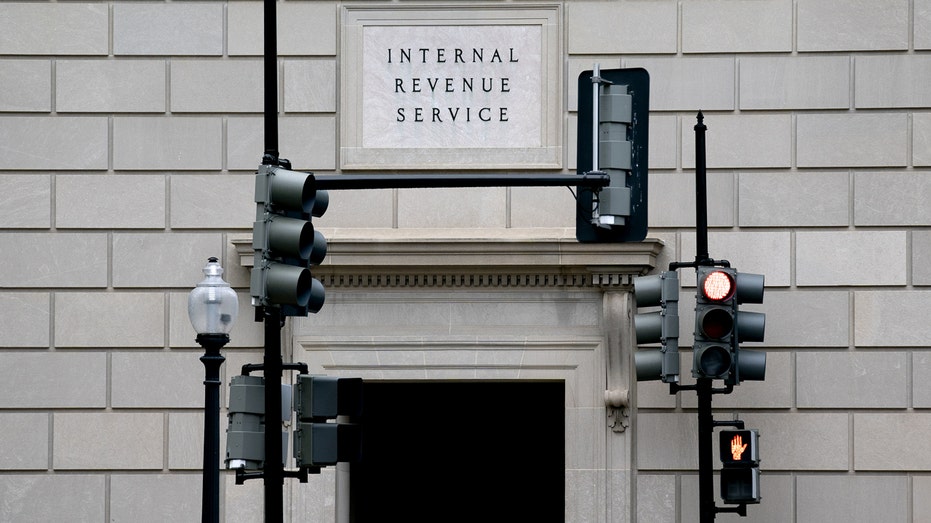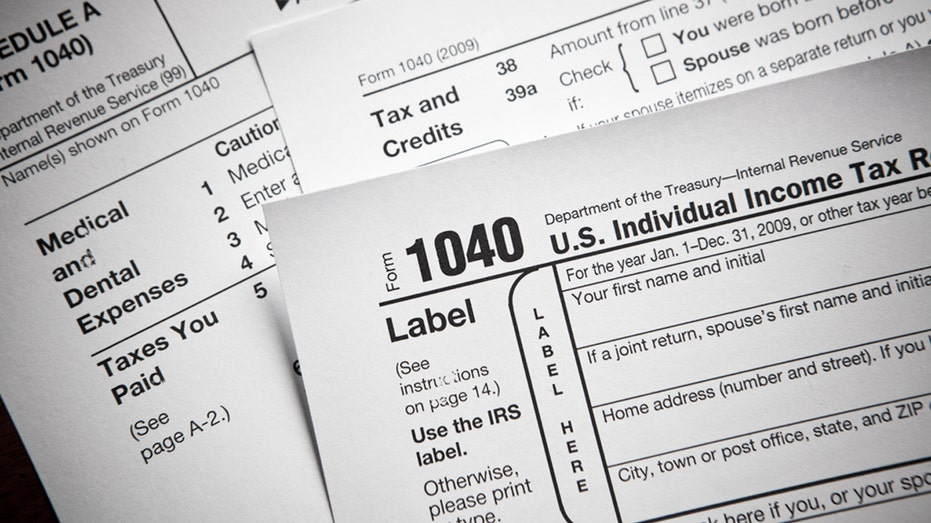What triggers an IRS audit?
Biden wants to give IRS extra $80B to crackdown on tax cheats
IRS bank reporting proposal 'will end up getting dropped': Laperriere
Cornerstone Macro Head of U.S. Policy Research Laperriere discusses the IRS bank account controversy, reconciliation bill price tag, tax increases and climate change proposals.
The IRS could soon get a massive infusion of cash to help it track down wealthy tax cheats.
President Biden has proposed giving the agency an additional $80 billion in funding in order to hire more enforcement agents, modernize outdated technology and invest in taxpayer services. The White House said the additional enforcement resources will be directed toward Americans with income above $400,000.
But Republican lawmakers, in a memo on Thursday, warned the beefed-up IRS could result in audits doubling over the next decade, with an additional 1.2 million each year.

The Internal Revenue Service (IRS) building in Washington, D.C., U.S., on Saturday, June 26, 2021. The Federal Reserve might consider an interest-rate hike from near zero as soon as late 2022 as the labor market reaches full employment and inflation (Stefani Reynolds/Bloomberg via Getty Images / Getty Images)
"President Biden wants to double Americans' chances of getting audited in order to squeeze every single dollar they can from American families and small businesses to fund the most expensive piece of legislation in history," House Minority Leader Kevin McCarthy said in a statement. "This would be a nightmare state for families living in fear of an army of IRS bureaucrats designed to second-guess and spy on them."
WEALTHY AMERICANS SHIELD 20% OF THEIR INCOME FROM THE IRS
But how exactly does the IRS determine who to audit – and what does that entail?
An audit means the IRS is reviewing an organization's or individual's accounts and financial information to sure everything is being reported correctly according to tax laws, and to verify the reported amount of tax is correct, according to the agency's website.
There are several reasons for audits: Returns are sometimes randomly selected based on a statistical formula; the return is then compared against "norms" for similar returns.
But there are also four major red flags that could trigger an audit, according to TurboTax.
Not reporting all of your income: "Unreported income is perhaps the easiest-to-avoid red flag and, by the same token, the easiest to overlook," TurboTax wrote in a blog about audits. The more income sources you have, the harder they can be to track. Frequently overlooked income sources include old brokerage accounts, Form 1099s and distributions from a college savings account to pay tuition.
Breaking the rules on foreign accounts: There are strict reporting requirements for foreign bank accounts under the Foreign Account Tax Compliance Act. The law stipulates that overseas banks identify American asset holders and that individuals report foreign assets worth at least $50,000 on Form 8938.
Blurring the lines on business expenses: The IRS closely examines excessive business tax deductions using occupational codes to measure typical amounts of travel by profession, and a tax return showing 20% or more above the norm might get a second look, according to TurboTax.
"Generally speaking, the IRS can be strict about mixing business and personal expenses. Business meals can be allowable, but exceeding the occupational norm by a great amount invites an audit," the website said. "Business meals oftentimes can be a blurred line, so be sure to document what is and isn't a personal expense."
Earning more than $200,000: Higher incomes are likely to result in more complex tax returns that are more likely to contain audit triggers. On top of that, the IRS wants to maximize return on investment.

Income tax numbers at the accountants office
The chance of being audited by the IRS is extremely slim at the moment, with the odds of an individual audit falling significantly over the past decade. The agency audited just 0.45% of individual tax returns in fiscal 2019, according to a recent Treasury Department report, or roughly 1 out of every 225 individual returns. Nearly half of those returns belonged to filers who claimed the Earned Income Tax Credit.
GET FOX BUSINESS ON THE GO BY CLICKING HERE
That figure is down from 0.59% in 2018 and 1.11% in 2010.
The data shows that out of more than 199 million tax returns in 2019, the IRS only examined 771,095 returns. That's a decline of 44% from fiscal year 2015.
In all, the IRS collected about $57.5 billion in enforcement revenue in fiscal 2019, which ended on Sept. 30, 2019. That's below the $59.4 billion it raked in during fiscal year 2018, according to Treasury figures.
The decline in audits is largely due to dwindling funding and enforcement staff: The IRS has 20,000 fewer staff than it did in 2010, and its budget is roughly $11.4 billion – 20% less than it was in 2010, when adjusted for inflation, according to the Congressional Budget Office.





















